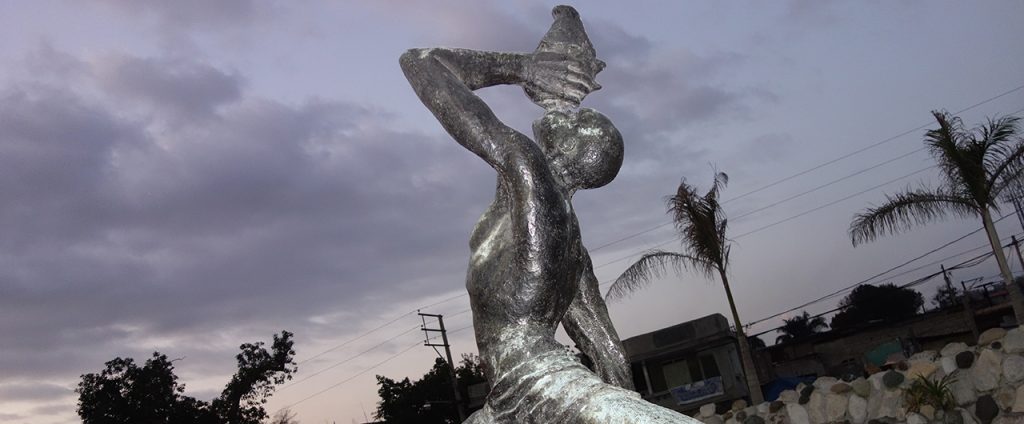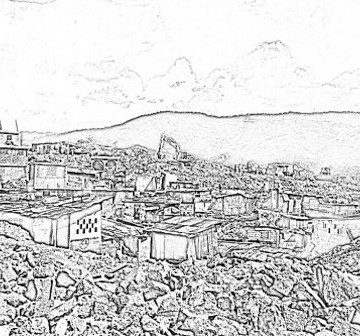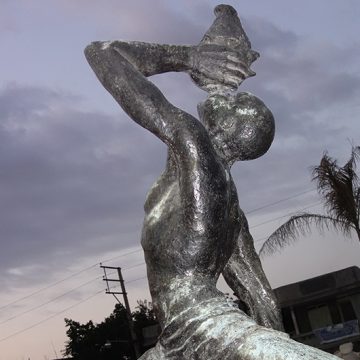Each year, as January 1st comes, Haitians not only celebrate a new year, but also their Independence Day. For some, the Haitian independence is just a foot note in history, culminating in a simple cliché: The first black republic in the modern world.
This year, instead of writing about the pride and the meaning of January 1st to Haitians, I want to take time to share some personal thoughts on the revolution that is still tormenting some of the world’s most powerful nations. The slave revolt in Saint-Domingue, as Haiti was known during colonial time, gave the world an Independent Haiti, which to this day is paying the price of their ancestors’ bravery.
The Haitian Revolution has been misunderstood by many, either because of a lack of knowledge regarding the French colonial system or simply on purpose to minimize the victory of African slaves over the imperial army of Napoleon.
Haiti’s slave revolt did not happen because of luck or simply as a favor from the masters, but rather it took years of struggle and strategy to fight against the worst form of human oppression. From the Indians who refused to obey the rules of the Spaniards to the brave Africans who chose death instead of serving white masters, the Haitian revolution, in its purest form was an inspiration of how the good in a few would always triumph over the evil of the many.
Slavery in the Americas by white Europeans was not only inhuman, it was plainly barbaric. Let’s try to bring to light why the Haitian revolution took place and how it happened, in order to properly understand why is it that after 213 years, the real fruit of the Haitian revolution is yet to be ripped.
The word revolution in its most empiric definition means the thorough replacement of an established government or political system by the people governed. In the case of Haiti pre 1804, we can replace governed people by oppressed or enslaved people.
In essence, the former slaves of the French colony were seeking a total change of the political and social system that deprived them of their humanity, dignity, and most preciously their liberty. The Haitian revolution main purpose was to overthrow the French masters, end slavery, and for the oppressed to take control of their destiny. After more than two centuries of trying to escape their way out of slavery, the oppressed Africans had no choice but to launch a full assault against their masters and their oppressive system.
In the French colony of Saint Domingue, slaves not only had to endure forced labors under the most bestial conditions, but in many occasions, black men had to watch their masters sexually violated their partners, sons had to watch their fathers getting beat, casted with hot iron if caught trying to escape the plantations.
For more than two centuries, the slaves were constantly made to believe they were inferior to their masters and that their only purpose in life was to accept the fact that they were properties of white men.
Leaders like Boukman, Makandal tried to awake the sleepy slaves against their oppressors. Where these great men did not succeed, it would be only a matter of time, before great warriors, military strategists, and diplomats in the likes of Toussaint L’Ouverture, Dessalines and Christophe would come along and make freedom for the slaves of Saint-Domingue a reality.
Some argued that it was a mistake for the Haitian revolutionary army and former slaves to massacre the whites during the fight for independence and also immediately after being victorious. Others even went a step further to call it, “white genocide” by the former slaves.
This past week, George Ciccariello, a professor at Drexel University, wrote on his Twitter feed: “To clarify: when the whites were massacred during the Haitian Revolution that was a good thing indeed.” Obviously this statement did not sit well with many people on Twitter and commended many follow-up replies.
The reaction and the direction of the debate about this tweet says a lot about the lack of understanding of many as to why the Haitian slaves had little choice but to totally defeat the French masters.
The very existence of the French colonists in Haiti after the revolutionary war represented a grave and imminent danger for the survival of the new republic. The masters who had brutalized theirs slaves for years would never accept their defeat nor recognize the new republic’s independence. Besides the political considerations, the revenge factor and level of anger from the former slaves could not be underestimated. Upon gaining independence, for the former slaves, letting the French colonists tasted a little bit of their atrocities was justice at last.
The Haitian Revolution, by any angle one looked at it, was simply a struggle for equality and self determination. It was and remained the only successful revolution won by the blacks on battle fields over the whites.
The slaves victory over their masters was not only a defeat of oppressive forces and the so-called superiority complex by which the whites thought were their alienated rights, but it was above all the best example of unity makes strength, which became the motto the Haitian Republic. For the revolution to succeed, for the most part and in great numbers, the slaves had to be united behind a common objective: Liberty or death.
The Haitian Revolution had to happen. The results of the battles were what they were, and history has yet to give the slave revolutionists their proper due. The casualties of a few oppressive white masters should never, ever be considered more important than the total extinction of the natives, the hundreds of thousands of Africans who perished at sea, and the millions of blacks who were dehumanized on the French plantations of Saint-Domingue.
Freedom is not free and it’s never given. To be free, one has to earn it, and the Haitians earned their freedom, not only through the revolutionary war, but also in conquering the French colonists by instilling fear in their heart and mind. The Haitian Independence was an irreversible act and still today, generations later, Haitians are still fighting to protect their independence.
Ilio Durandis, a Caribbean Journal contributor, studied political science at the University of Massachusetts-Lowell. He holds a masters in molecular biology. He currently serves as the Vice-Dean for the Medical Biology and Director of the Mckenna Biosciences programs at Universite Notre Dame Haiti- UDERS Hinche.







